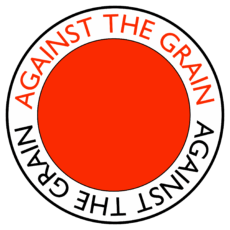Against the Grain with Sasha Lilley – February 5, 2013
Marxist georgrapher David Harvey, author of “The Enigma of Capital,” speaks about capitalism, crisis, and urbanization.

12:00 PM Pacific Time: Mondays - Wednesdays
Acclaimed program of ideas, in-depth analysis, and commentary on a variety of matters—political, economic, social, and cultural—important to progressive and radical thinking and activism. Against the Grain is produced and hosted by Sasha Lilley.
Marxist georgrapher David Harvey, author of “The Enigma of Capital,” speaks about capitalism, crisis, and urbanization.
Historian of science Robert Proctor, author of “Golden Holocaust,” discusses why cigarettes may be the world’s deadliest invention in this encore presentation.
Roderick A. Ferguson, professor of race and critical theory, explores how the demands of social movements for the inclusion of women and people of color in the academy were absorbed by universities, capital, and the state.
Several highlights from the past year, including David Hawkes on money, Suzanne Guerlac on the “open society,” Eric Keenaghan on Emerson and “the common,” Julie Guthman on food politics, and Jessica Henry on “death-in-prison” sentences.
Performance artist and poet Shailja Patel discusses the experience of migration and empire, as refracted through her own life and that of her family, Kenyans of South Asian descent.
Koohan Paik describes this nation’s anti-China stance, its militarization of the Asia-Pacific region, and grassroots resistance in South Korea and beyond. Also, Part Two of an interview with Ron Glass about the Brazilian educator and thinker Paulo Freire.
UC Santa Cruz professor Ron Glass discusses the ideas of Paulo Freire, the Brazilian educator and philosopher who authored the seminal volume “Pedagogy of the Oppressed.”
Adriana Camarena and Chris Carlsson, co-editors of “Shift Happens! Critical Mass at 20,” discuss the successes and paradoxes of Critical Mass.
In “Jewish Radicals,” Tony Michels explains the sustained participation of American Jews in leftist politics, movements, and debates. Also, Colleen Stockmann on “The Radical Camera,” an exhibition about New York’s Photo League.